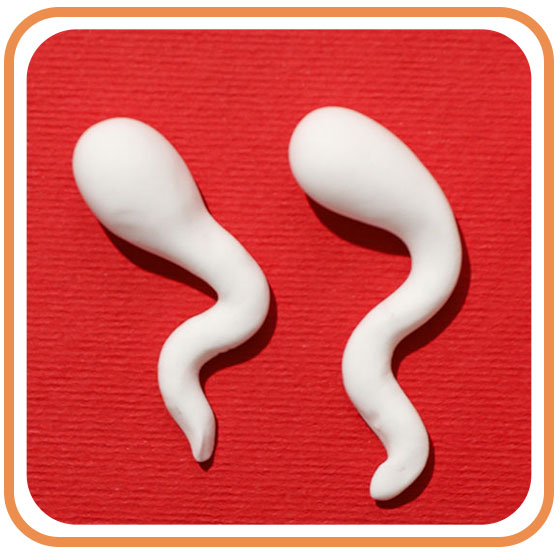Sperm donation is recommended as a treatment option for our patients in our clinic when the man’s sperm does not possess the necessary characteristics to fertilize the egg. According to the Regulation on Assisted Reproductive Treatments in Turkish Republic of Northern Cyprus, sperm donation is an available treatment. The inability of sperm to fertilize the egg may be due to numerical, structural, or motility disorders.
Donated sperm is generally used when a male partner’s reproductive system has abnormalities. These abnormalities can be caused by:
Who is Suitable for?
1. Men with abnormal sperm parameters:
Azoospermia: No sperm cells in the semen
Oligospermia: Low sperm count
Asthenospermia: Sperm motility disorder
Teratospermia: Sperm shape disorder
2. Men who are carriers of genetic diseases.
3. Patients who have previously failed microTESE attempts.
4. Single women or couples who want to have children due to their gender identity.
5. Women who want to have children alone.
6. Individuals whose sperm production has stopped after radiotherapy/chemotherapy.
There can be various reasons for a man’s lack of sperm:
Structural sperm production disorder
Blockage in the ducts that transport sperm to the semen
Cessation of sperm production due to external factors such as subsequent surgery, chemotherapy, or radiotherapy
Cancer diagnosis
The possibility of children being born with an inherited genetical disease
➡️ Furthermore, since marriage is not a requirement for in vitro fertilization in the Turkish Republic of Northern Cyprus, sperm donation provides the opportunity for single women or lesbian couples to have children.
Contact us now for more information. 🧬

After the intended father’s need for sperm donation is clearly determined through examinations, a donor request form is completed. Characteristics such as the prospective father’s height, weight, hair color, skin tone, eye color, blood type, and ethnicity are recorded.
Sperm are brought to the Turkish Republic of Northern Cyprus from licensed sperm banks based in Denmark.
Information regarding the physical characteristics, blood types, and educational backgrounds of donors is available on the websites of sperm banks Cryos and European Sperm Bank. Before initiating sperm donation treatment, the intended mother must be meticulously evaluated, and her egg reserve and intrauterine status must be clearly determined through the necessary tests. The sperm is procured from sperm bank and the intended mother’s egg development treatment begins simultaneously.
Northern Cyprus is a country with a legal infrastructure for sperm donation, permitting its use, and is experienced and reputable in this field. At Fertina IVF, we provide services to our patients based on confidentiality, ethical practices, and trust.
Our pregnancy rate at our clinic with sperm donation treatment is over 80%.
Hope Meets Science with Fertina IVF!
Sperm donation is an effective and reliable option for men who cannot have children due to medical reasons and for women who dream of becoming mothers. If you are looking for the best way to have a child, Fertina IVF offers a comprehensive plan for you.
Fertina IVF: The Scientific and Reliable Solution to Your Dream of Having a Family.
Contact us for more information and to take the first step.
We advise you to schedule an appointment at our clinic in order to plan a sperm donation procedure. With the help of our skilled fertility specialists, we will collaborate with you to create the most effective treatment plan for your unique requirements and raise the likelihood of a positive result.
WhatsApp us